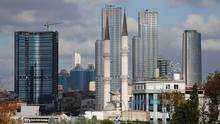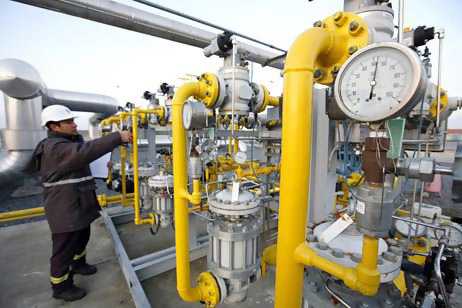Standard & Poor’s said on Monday it would no longer offer a full rating service for Turkey, ditching much of its work with the economically booming country eight months after a spat over a negative report.
 The credit ratings agency said it had failed to reach a deal with Turkey and would in future only issue an “unsolicited” assessment – meaning that it is not paid by the country to provide cover but does so anyway to meet investors’ needs.
The credit ratings agency said it had failed to reach a deal with Turkey and would in future only issue an “unsolicited” assessment – meaning that it is not paid by the country to provide cover but does so anyway to meet investors’ needs.
The country responded angrily last May when S&P cut the outlook on its BB sovereign credit rating to stable from positive. Prime Minister Tayyip Erdogan warned Ankara may no longer “recognize” the agency, calling its decision “ideological.”
“We are converting our issuer credit ratings on Turkey to “unsolicited” as we no longer have a rating agreement with this sovereign,” S&P said in a statement.
“We will nonetheless continue to rate Turkey on an unsolicited basis because we believe that we have access to sufficient public information of reliable quality to support our analysis … and because we believe there is significant market interest in this unsolicited rating.”
S&P rates Turkey at BB, two rungs below investment grade. Fitch has raised it to investment grade at BBB– and Moody’s just below investment grade at Ba1.
“The government is … probably sending a non-too-disguised message that it sets little store in the S&P rating at BB,” said Timothy Ash, head of emerging markets research at Standard Bank.
“It has long argued that the current junk bond rating is unjustified and unfair, and we would agree,” he said.
S&P says that less than 10 per cent of its sovereign ratings are “unsolicited,” but these include the United States and Britain.
It was the reasoning behind S&P’s move last May that appeared to touch a raw nerve.
The agency cited Turkey’s huge current-account deficit – its negative balance of trade in good and services, earnings on foreign investments and cash transfers such as workers’ remittances – as well as the heavy inflows of foreign capital which the country needs to pay for that gap.
While the inflows continue, Turkey can live comfortably with its deficit. But if they dry up, the country could be in for “external shocks” such as a plunge of its currency which would push up inflation and interest rates, S&P warned at the time.
Turkey was Europe’s fastest growing economy in 2011 but its external deficit widened to almost 10 per cent of national output at the same time and the deficit remains the country’s main economic weakness even as growth slowed last year.
The deficit widened to $4.48-billion (U.S.) in November, the latest month for which data is available, from $1.96-billion a month earlier, although it came in just below a Reuters poll forecast for a deficit of $4.8-billion.
Turkish growth remains robust compared with debt-choked Europe and much of the Middle East, and state finances are strong. The government is aiming for a budget deficit of just 2.2 per cent of national output this year and state debt is seen at around 35 per cent of GDP, well below most euro zone states.
“Most people will just ignore this,” Alex Perjassy, senior emerging markets fixed income strategist at AllianceBernstein, said of the end of the ratings deal with S&P.
“Most people have ignored sovereign ratings on Turkey in the past few years given the ratings have not reflected Turkish fundamentals for some time.”
via Turkey and S&P fail to reach deal after spat over ‘junk bond’ rating – The Globe and Mail.





